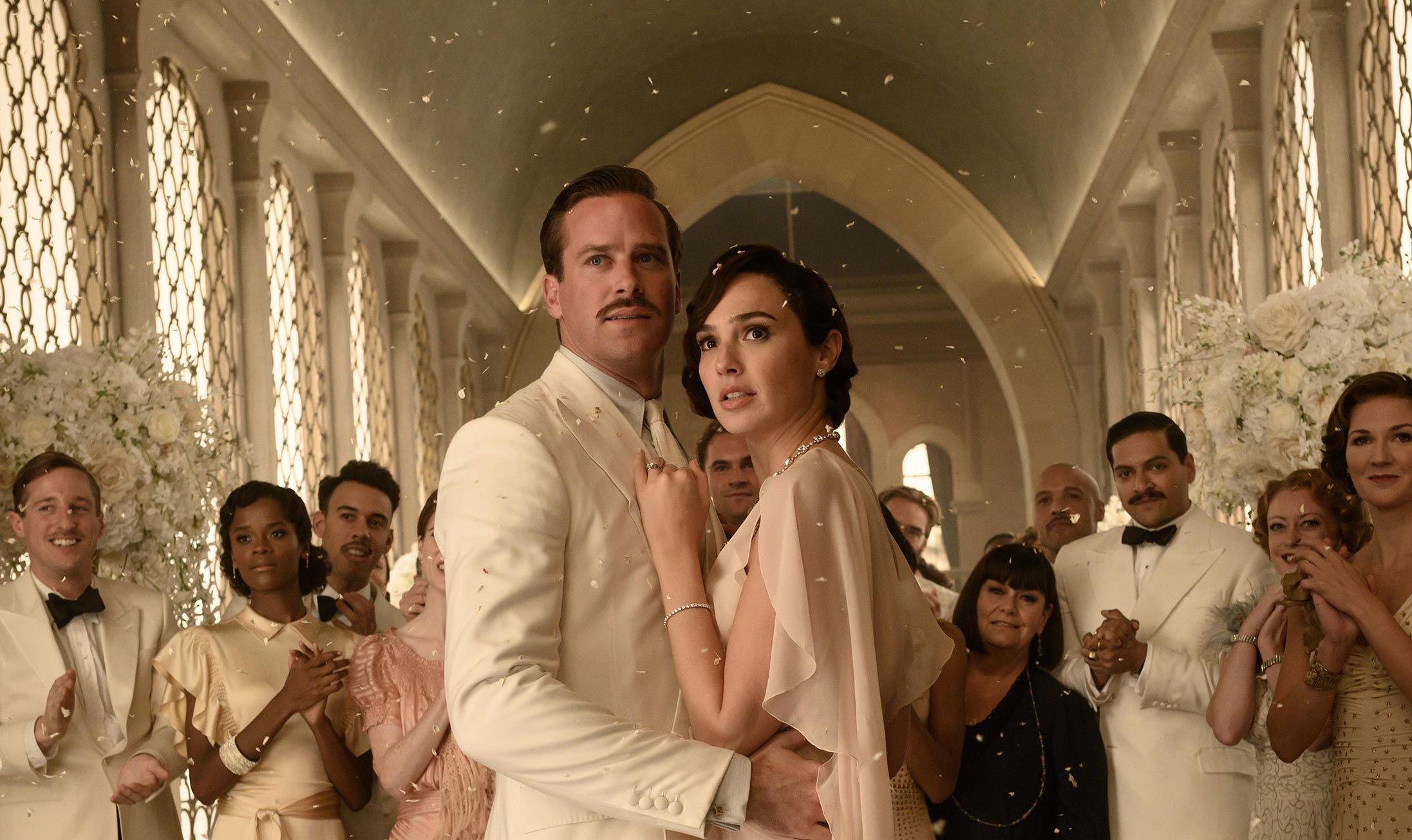Life Style: REVIEW: ‘Death on the Nile’ — Kenneth Branagh’s murder-mystery lacks urgency

DUBAI: With “Death on the Nile,” director Kenneth Branagh revisits another iconic Agatha Christie novel (following 2017’s “Murder on the Orient Express”) — this time a glamorous-but-deadly whodunnit set on a Nile River cruiseship in the 1930s.
Famed Belgian detective Hercule Poirot (Branagh) is on board the elegant floating palace SS Karnak, which is hosting the honeymoon celebrations of wealthy socialite Linnet Ridgeway (Gal Gadot) and the less-than-rich Simon Doyle (Armie Hammer). The party is disrupted by the unexpected arrival of Doyle’s ex-fiancée Jacqueline de Bellefort (Emma Mackey), who wants to get her man back.
This love triangle is surrounded by a closed circuit of guests that are linked to Ridgeway, including her accountant Andrew Katchadourian (Ali Fazal) and her godmother Marie Van Schuyler (Jennifer Saunders). Ridgeway feels unsafe, telling Poirot: “When you have money, no one is ever really your friend.” In the inevitable event of her murder, then, everyone becomes a suspect as far as Poirot is concerned. The eventual reveal of the murderer is a testament to Christie’s genius with unexpected plot twists.
Branagh has wisely adapted Christie’s story for a 21st-century audience. He has made some bold additions that will surprise (and possibly horrify) Christie purists. And he has also selected a racially diverse ensemble cast. Unfortunately, few of them deliver particularly memorable performances. Mackey is one exception; she manages to conjure some emotional depth in her portrayal of the bitter, determined jilted lover. Russell Brand is surprisingly successful playing against type as a far-from-eccentric doctor who is also Ridgeway’s former lover. And Branagh himself is typically shrewd and precise as Poirot. Overall, though, the film feels a little leaden, both in terms of acting and writing. In places, the pace borders on soporific.
One of Branagh’s most significant tweaks to the story is to broaden the audience’s understanding of the enigmatic Belgian detective. We learn a little of Poirot’s love life, and — most significantly — of his tragic past as a soldier in World War I. These scenes are shot in black-and-white; an effective, and effecting, choice. And we also learn the origin story of Poirot’s iconic moustache. It will be interesting to see, if Branagh goes on to deliver a third film, where life might take Poirot (geographically, but more importantly, emotionally) from here.
The real star of the film, however, is the magical scenery of Egypt (even if it is computer-generated). “Death on the Nile” may be a slow ride, but visually it’s a lovely piece of armchair travel.

Noting that the news was copied from another site and all rights reserved to the original source.
xnxx,
xvideos,
porn,
porn,
xnxx,
Phim sex,
mp3 download,
sex 4K,
Straka Pga,
gay teen porn,
Hentai haven,
free Hentai,
xnxx,
xvideos,
porn,
porn,
xnxx,
Phim sex,
mp3 download,
sex 4K,
Straka Pga,
gay teen porn,
Hentai haven,
free Hentai,




